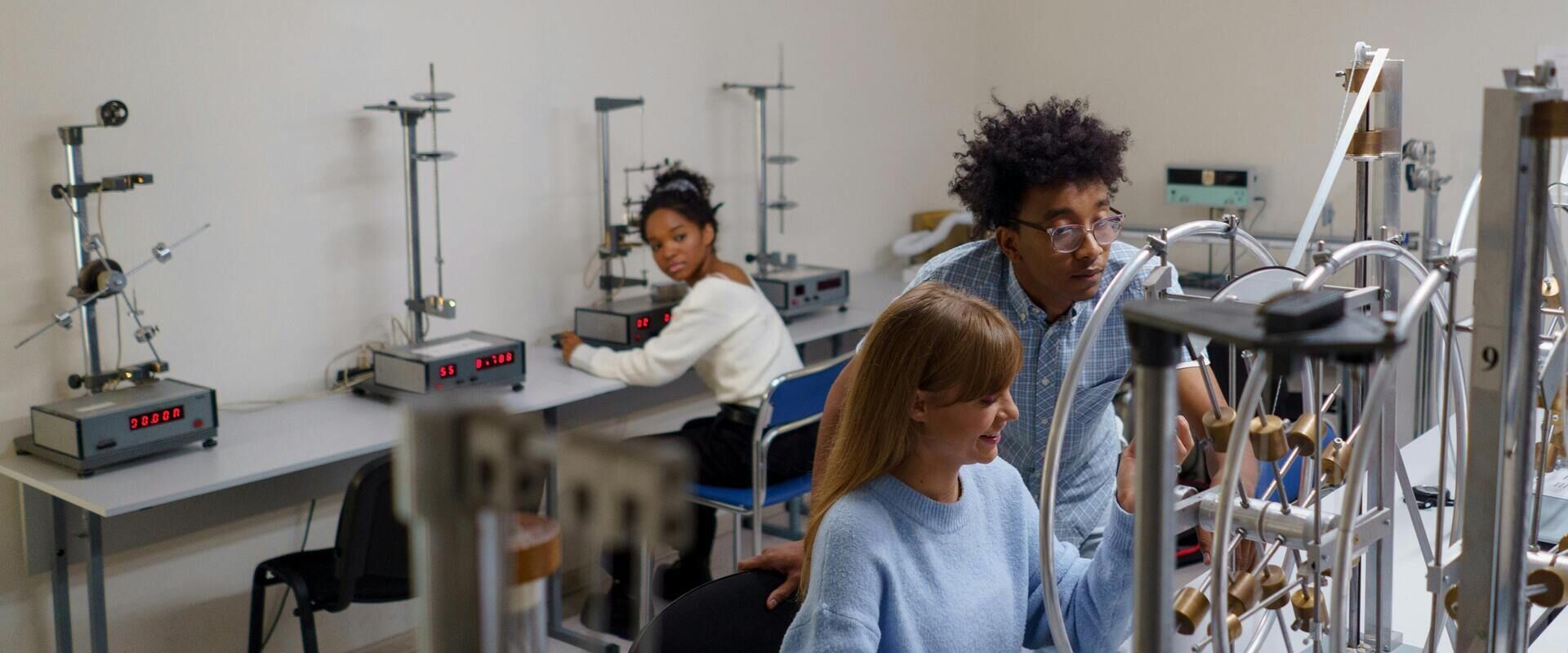Top 10 Best Universities for Physics in Europe in 2026

Dreaming of studying physics at a top university? Europe is home to some of the world’s most prestigious institutions, offering numerous research opportunities, modern laboratories, and inspiring academic environments.
From quantum mechanics to astrophysics, these universities have consistently shaped the future of physics through groundbreaking discoveries and Nobel Prize–winning work.
Whether your goal is to study quantum mechanics in Switzerland, join cutting-edge labs in the UK, or experience the student life in the Netherlands, these top 10 universities train their students with the skills, experiences, and connections to succeed in a global scientific community.
Study Physics: Find Bachelors & Masters in English
Physics is tough, there’s no sugarcoating it. The subject is packed with tricky concepts, a lot of math, and plenty of hours spent puzzling over homework and labs. Sometimes it can feel overwhelming, especially when the pace picks up in university and you’re juggling lots of different topics all at once.
But even though it’s challenging, many students find that the effort is totally worth it. Getting through those tough problems, learning how the world really works, and seeing your skills grow is genuinely rewarding. If sticking with hard tasks and pushing through frustration sounds like your kind of challenge, physics can be an amazing and satisfying path to take.
Still not sure? A great way to find out is by exploring the large amount of free content available online. There’s many YouTube channels (such as PBS Space Time), educational websites, forums and free courses that explain physics concepts in simple, accessible ways. Make sure to check out these resources to get a feel for topics like mechanics, electricity, or quantum physics from home and decide if you enjoy learning about them before committing to a full degree.
The list below highlights the top universities in Europe for Physics degrees, selected not only for their strong presence in renowned global rankings like ARWU, QS, and THE, but also for their active efforts to attract and support students from around the world.
| University | Country | Degree Type |
|---|---|---|
| Chalmers University of Technology | Sweden | 7 Masters of Science |
| ETH Zurich | Switzerland | Undergraduate, Postgraduate |
| Kaunas University of Technology (KTU) | Lithuania | 2 Master’s, 1 PhD |
| PSL University | France | Graduate Programmes |
| Stockholm University | Sweden | 9 Master’s |
| Technical University of Munich | Germany | Master’s |
| University of Helsinki | Finland | 1 Bachelor, 1 Master |
| University of Milan | Italy | 2 Master’s |
| Universidad Politécnica de Madrid | Spain | 2 Master’s |
| University of Twente | Netherlands | 1 Masters of Science |
Study Physics: Find universities in Europe
In a typical physics degree, the modules and topics cover everything from the basics up to advanced ideas. Early on, expect classes in classical mechanics, electromagnetism, and introductory math for physicists. As the year goes on, modules like quantum mechanics, astrophysics, thermodynamics, and optics will pop up too.
There’s usually a mix of lectures, labs, group projects, and optional modules depending on the university and year. Expect to see modules such as:
Many of these topics will be present when you do a Bachelor in Physics. And when you decide to start a Master in Physics, you might be able to specialise more in one of these areas.
University rankings can give a quick snapshot of how well a physics department is seen globally or regionally, but they aren’t the only thing to consider. For physics degrees, what really matters is the quality of teaching, research opportunities, and how well the university fits a student’s interests and goals.
Highly ranked schools often have strong research programmes and resources, which can help for graduate study or careers in physics. However, many students find that mid-ranked or less famous universities can offer just as good an education and a better undergraduate experience.
In short, rankings have some value as a general guide, but they shouldn’t be the only factor when choosing where to study physics. After all, you don’t need to attend the “best” university to make groundbreaking discoveries or even become the next Nobel Prize winner in Physics, what matters most is your passion, curiosity, and dedication to the subject.
�������Ƶ Tip: Try identify which areas of physics you are truly excited about and focus on universities known for their strength in those topics. For example, if you like astrophysics, choosing a university with strong research groups, observatories, or collaborations in those fields will provide better learning and internship opportunities. Similarly, if you are interested in quantum mechanics or particle physics, looking for universities linked to research labs or projects like CERN can be a huge advantage.
Admissions requirements to study Physics at university in Europe typically include strong academic qualifications in mathematics and physics. Here are some other common requirements:
For international students, universities usually accept a broad range of qualifications but you should always check each specific university website for detailed and updated admission criteria.
Tuition fees for physics degrees in Europe vary widely depending on the country, university, and whether the student is from the EU/EEA or an international student.
For EU/EEA students, many countries offer relatively low tuition fees, often ranging from €0 to around €3,000 per year. For example, countries like Germany, Norway, and Finland typically charge little to no tuition for EU students at public universities.
In contrast, non-EU students usually pay higher fees, which can range between approximately €6,000 and €20,000 annually depending on the institution and country.
All fields within STEM - Sciences, Technology, Engineering, Mathematics - are more or less related, and all are important. But if Physics is not quite what you want to study, you might consider these subjects instead:
Want to learn more?
Find Bachelors & Masters in Physics now 🧪